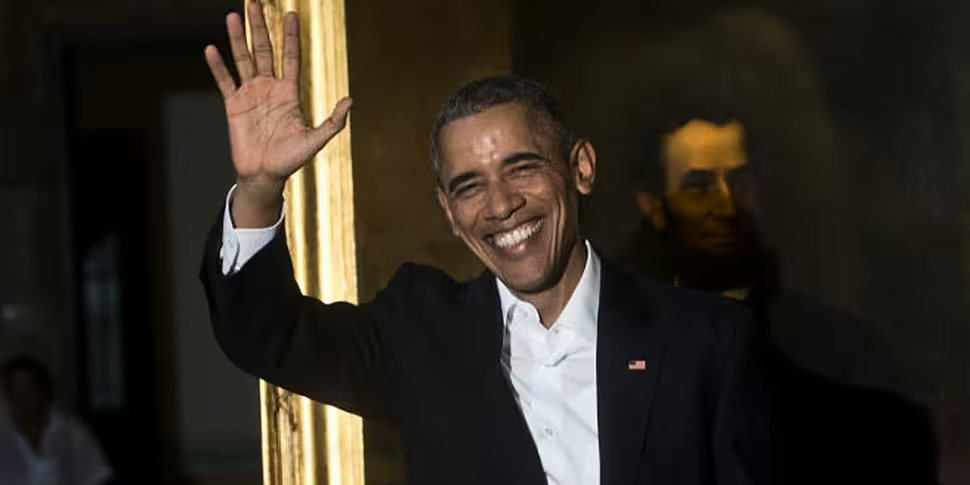The Irish Government has previously had to defend itself and its tax set-up against outraged EU officials, including former President Nicolas Sarkozy, who argued in the midst of the recession that "they cannot continue to say 'come and help us' while keeping a tax on company profits that is half [that of other countries]".
In 2016, however, the disgruntled shots are increasingly being fired from across the Atlantic. And they're coming from some of the United States' highest profile politicians.
US President Barack Obama himself became the latest to enter the fray, as new measures from the US Treasury Department to restrict "inversion deals" caused the collapse of a $160bn dollar merger deal between Pfizer and the Dublin-based Allergan.
Obama issued a stern condemnation of tax loopholes and the US companies that move to countries such as Ireland to use them, saying:
"When companies exploit loopholes like this... it sticks the rest of us with the tab and it makes hard-working Americans feel like the deck is stacked against them".
It's a message being delivered across the US political spectrum, with several of the main candidates vying for a party place in the race to the White House hitting out on the relationship between US multinationals and Ireland.

For Hillary Clinton, who took time out with a Guinness to seduce Irish-American voters around St. Patrick's Day, the situation is nothing less than a "perversion".
Speaking specifically about Milwaukee-based Johnson Controls' acquisition of Cork's Tyco, she commented from the Iowan campaign trail in January:
"It is outrageous when large multinational corporations game the tax code and shelter money overseas to avoid paying their fair share, including through maneuvers like inversions.
"We’ve got to take all these abuses on. We’ve got to go after everybody who’s trying to undercut America’s prosperity...
"Now they want to move overseas for the sole purpose of escaping their fair share of taxes".

Bernie Sanders, Clinton's chief competitor for the Democratic ticket, echoed her sentiments:
"Profitable companies that have received corporate welfare from American taxpayers should not be allowed to renounce their U.S. citizenship to avoid paying U.S. taxes".
Across the political aisle, Republic hopeful Donald Trump took aim at Pfizer and claimed that the Irish were "outsmarting" the US.
In a March meeting with the Washington Post's editorial board, he said:
"Other countries are outsmarting us by giving them advantages, you know, like in the case of Mexico. In the case of many other countries.
"Like Ireland is, you’re losing Pfizer to Ireland, a great pharmaceutical company that with many, many jobs and it’s going to move to Ireland".
Trump has previously spoken at length about forcing American companies to return home:
"We're gonna get Apple to start building their damn computers and things in this country, instead of in other countries."

Ted Cruz, Trump's nearest rival, aims to lure companies back by slashing taxes from 35% with his 16% business flat tax. He also wants to target Irish competition for jobs on American soil. In February, the "half-Irish" Republican promised to promptly deport undocumented Irish:
"I think Donald Trump and Marco Rubio are wrong to drive down wages and take away Americans' jobs by giving 12 million people here illegally US citizenship. That is not consistent with American law".
An issue that seems to be reaching fever pitch as Americans prepare to hit the polls in November, it has been bubbling under the surface for a number of years.
In 2013, Michael Collins, then Ireland's ambassador to the US, penned a letter on behalf of the government to Capitol Hill arguing that Ireland was not a tax haven.
Senator Carl Levin and Senator John McCain, two main members of the US Senate committee investigating tax avoidance, responded thusly:
"Most reasonable people would agree that negotiating special tax arrangements that allow companies to pay little or no income tax meets a common-sense definition of a tax haven".









